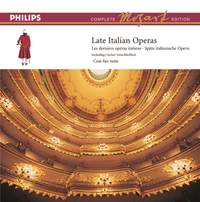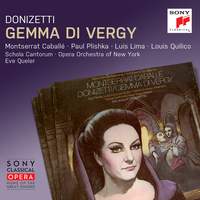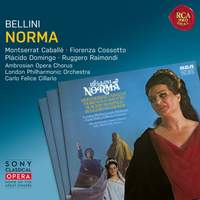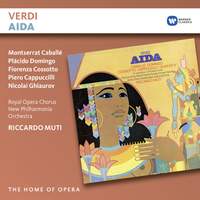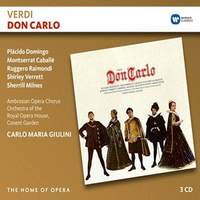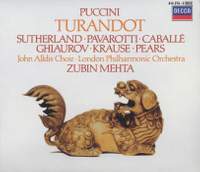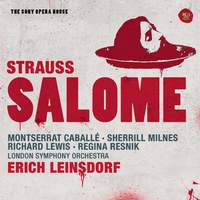Obituary,
Montserrat Caballé (1933-2018)
 The Spanish soprano Montserrat Caballé has died aged 85; one of the greatest singers of the mid twentieth century, she was renowned for her legendary high pianissimi, near-superhuman breath-control and formidable agility, qualities which made her a supreme interpreter of bel canto roles and Verdi.
The Spanish soprano Montserrat Caballé has died aged 85; one of the greatest singers of the mid twentieth century, she was renowned for her legendary high pianissimi, near-superhuman breath-control and formidable agility, qualities which made her a supreme interpreter of bel canto roles and Verdi.
Born into a poor family in Barcelona on 12th April 1933, Maria de Montserrat Viviana Concepción Caballé i Folch trained at the city’s Liceu Conservatory and began her career as an ensemble-member at Basel Opera in the mid-1950s, making her professional debut as Mimì in La bohème and going on to sing roles including Mozart’s Pamina, Fiordiligi, Donna Elvira and First Lady, and Strauss’s Arabella and Chrysothemis.
Over the next decade, Caballé worked steadily and made successful debuts at houses including the Grand Teatre del Liceu, Bremen Opera, and the Palacio de Bellas Artes in Mexico, but it was a short-notice engagement in a then-unfamiliar bel canto opera in April 1965 that catapulted her to stardom literally overnight – stepping in for a heavily pregnant Marilyn Horne in the fearsomely demanding title-role of Donizetti’s Lucrezia Borgia at Carnegie Hall (conducted by Jonel Perlea and presented by the American Opera Society), Caballé received an ovation of almost half an hour and was immediately approached by Rudolf Bing with an open invitation to make her Metropolitan Opera debut, which took place later that year in Gounod’s Faust. Inundated with offers from record companies in the aftermath of the Carnegie Hall performance, she signed with RCA and went on to record her breakthrough role under Perlea the following year, with Alfredo Kraus as Gennaro and Shirley Verrett as Orsini; she was also swiftly re-engaged by the American Opera Society to sing another Donizetti heroine, Elisabetta in Roberto Devereux.
Caballé had stumbled into bel canto repertoire almost entirely by chance (Lucrezia had been her first such role, and that learnt at breakneck speed), but her ability to spin seamless long lines and navigate the most daunting coloratura roulades soon established her as an ideal interpreter of the Bellini and Donizetti operas which were becoming increasingly fashionable in the 1960s, and her repertoire rapidly expanded to encompass roles such as Donizetti’s Lucia di Lammermoor, Maria Stuarda and Anna Bolena, Bellini’s Elvira (I puritani), Imogene (Il Pirata) and Norma, and Rossini’s Semiramide, Elena (La donna del lago) and Mathilde (Guillaume Tell). Even in a golden age of bel canto singing, Caballé emerged as a singer with a unique vocal identity which makes her instantly distinguishable from her rivals: the voice was creamier and more voluptuous than that of her contemporary Joan Sutherland (opposite whom she recorded Liù in Turandot and Adalgisa in Norma), and her timbre more straightforwardly beautiful than that of Maria Callas, but she yielded little to either in terms of agility and precision and remained a compelling vocal actress even when health problems impeded her mobility later in life.
Though bel canto was central to her repertoire on stage and in the recording studio for most of her career, by the late 1960s Caballé was also in great demand internationally for Puccini and Verdi; her roles at the Metropolitan Opera (where she notched up almost 100 performances in the course of two decades) included Desdemona, Luisa Miller, Leonora (Il trovatore) and Tosca, and her recordings of Elisabetta in Don Carlo and the title-role in Aida (both opposite Plácido Domingo) rank among her finest achievements on disc. In addition to her Italian repertoire, she was also acclaimed in Strauss, who had figured prominently at the very beginning of her career in Basel; she made her Glyndebourne debut as the Marschallin in 1965 (just a few months after her Carnegie Hall breakthrough), and though she rarely performed the role on stage she recorded a Salome of chilling, opulent beauty for Erich Leinsdorf three years later.
As her fast-paced operatic career began to wind down in the late 1980s, Caballé branched into classical crossover with considerable success: an ostensibly incongruous collaboration with Queen frontman Freddie Mercury on the flamboyant popera anthem Barcelona (released in 1987 and later adopted as the official song of the 1992 Summer Olympics in the city) made her a household name, and she also recorded with artists including Vangelis, Johnny Hallyday, and Eurovision winner Johnny Logan.
Despite being dogged by ill health throughout the last two decades of her life, Caballé never officially retired from the stage (she was taking new, often obscure roles into her repertoire as recently as 2004, and made a non-singing appearance as La Duchesse de Crakentorp in Donizetti's La fille du régiment in Vienna in her mid-seventies), and also did extensive non-musical charity work as well as working closely with emerging young singers, founding the Concurs Internacional de Cant Montserrat Caballé in 1997.
Caballé died in Barcelona on 6th October from complications following a gallbladder infection; she is survived by her husband (the Spanish tenor Bernabé Marti, who sang Pinkerton to her Cio-Cio San on a live recording of Madama Butterfly from 1967) and their two children.
Montserrat Caballé - 10 Great Recordings
Mozart: Così fan tutte (download-only)
Montserrat Caballé (Fiordiligi), Dame Janet Baker (Dorabella), Nicolai Gedda (Ferrando), Wladimiro Ganzarolli (Guglielmo), Ileana Cotrubas (Despina), Richard van Allan (Don Alfonso)
Orchestra and Chorus of the Royal Opera House, Sir Colin Davis
Available Formats: MP3, FLAC
Donizetti: Gemma di Vergy
Montserrat Caballé (Gemma), Natalya Chudy (Ida), Luis Lima (Tamas), Louis Quilico (Conte di Vergy), Paul Plishka (Guido)
Schola Cantorum, New York Opera Orchestra, Eve Queler
Available Formats: MP3, FLAC, Hi-Res FLAC, Hi-Res+ FLAC
Bellini: Norma
Montserrat Caballé (Norma), Fiorenza Cossotto (Adalgisa), Plácido Domingo (Pollione), Ruggero Raimondi (Oroveso)
London Philharmonic Orchestra & Ambrosian Opera Chorus, Carlo Felice Cillario
Available Format: 3 CDs
Verdi: Aida
Montserrat Caballé (Aida), Plácido Domingo (Radamès), Fiorenza Cossotto (Amneris), Nicolai Ghiaurov (Ramfis), Piero Cappuccilli (Amonasro)
New Philharmonia Orchestra, Royal Opera Chorus, Riccardo Muti
Available Format: 3 CDs
Verdi: Don Carlo
Plácido Domingo (Don Carlo), Montserrat Caballé (Elisabetta), Shirley Verrett (Eboli), Sherrill Milnes (Rodrigo), Ruggero Raimondi (Philip II), Giovanni Foiani (Grand Inquisitor)
Royal Opera House Covent Garden, Carlo Maria Giulini
Available Format: 3 CDs
Puccini: Turandot
Joan Sutherland (Turandot), Luciano Pavarotti (Calaf), Montserrat Caballé (Liù), Nicolai Ghiaurov (Timur)
London Philharmonic Orchestra, John Alldis Choir, Wandsworth School Boys’ Choir, Zubin Mehta
Available Formats: MP3, FLAC
Strauss: Salome
Montserrat Caballé (Salome), Sherrill Milnes (Jokanaan), Regina Resnik (Herodias), Richard Lewis (Herod)
London Symphony Orchestra, Erich Leinsdorf
Available Formats: MP3, FLAC


